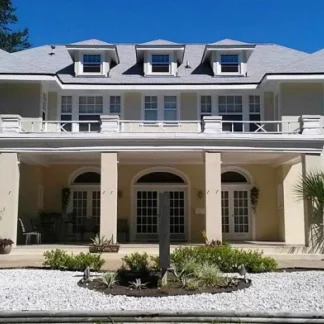Assisted Recovery Center
Assisted Recovery Center is a state-of-the-art medical treatment for alcohol and...
Mission Teens - Savannah MBTC is a non-denominational Christian Discipleship ministry located in Savannah, GA. Mission Teens - Savannah MBTC has a training program divided up into four phases.
Mission Teens, Inc. is a non-denominational Christian Discipleship ministry dedicated to helping people who struggle with life-controlling problems by ministering the Gospel of Jesus Christ to them. We believe that the Gospel should be free to all.
Almost all of our staff are graduates of the discipleship training program. They do not receive any salary, but work as missionaries, giving back their life to serve the Lord by reaching out to others. The Assistant Executive Directors at each center work directly with the Executive Director to train the staff, oversee the general condition of the buildings and raise the necessary support, as well as teach, counsel, etc.
Contact us for more information: (912) 234-7000

Connect with Mission Teens - Savannah MBTC by calling their admissions team directly.
(912) 234-7000 Website Get DirectionsGroup therapy is any therapeutic work that happens in a group (not one-on-one). There are a number of different group therapy modalities, including support groups, experiential therapy, psycho-education, and more. Group therapy involves treatment as well as processing interaction between group members.
Life skills trainings involve all the skills a person must have in order to function successfully in the world. These include time management, career guidance, money management, and effective communication. Truly successful addiction recovery is based on the ability to not only live substance-free, but to thrive. Life skills teaches the practical necessities of functioning in society, which sets clients up for success in life, and therefore sobriety.
Life skills trainings involve all the skills a person must have in order to function successfully in the world. These include time management, career guidance, money management, and effective communication. Truly successful addiction recovery is based on the ability to not only live substance-free, but to thrive. Life skills teaches the practical necessities of functioning in society, which sets clients up for success in life, and therefore sobriety.
Assisted Recovery Center is a state-of-the-art medical treatment for alcohol and...
Memorial Health Medical Center for Behavioral Medicine is a private rehab locate...
Access Mental Health Agency - Abercorn Street offers outpatient treatment for in...
Assisted Recovery Center of Georgia offers science-based, medically assisted det...